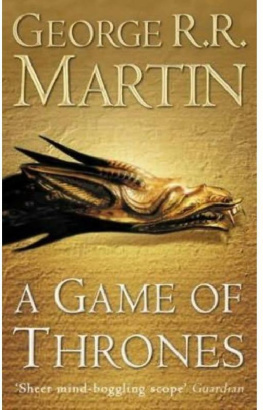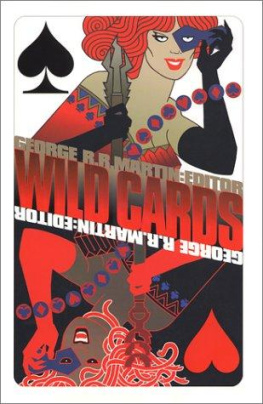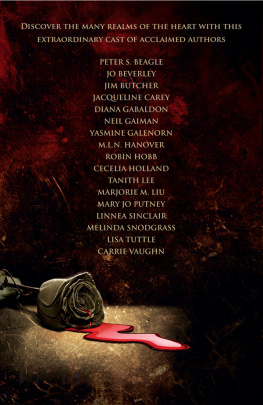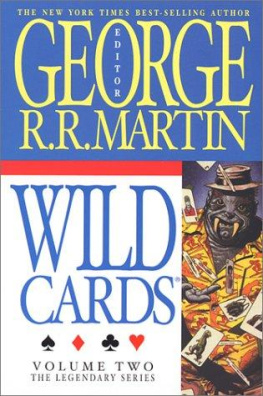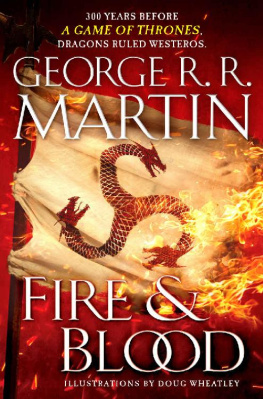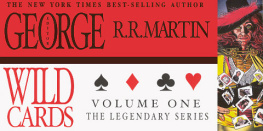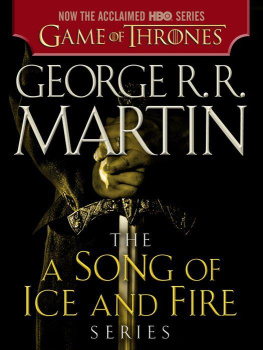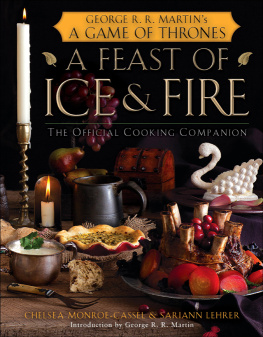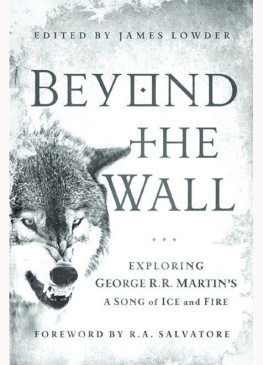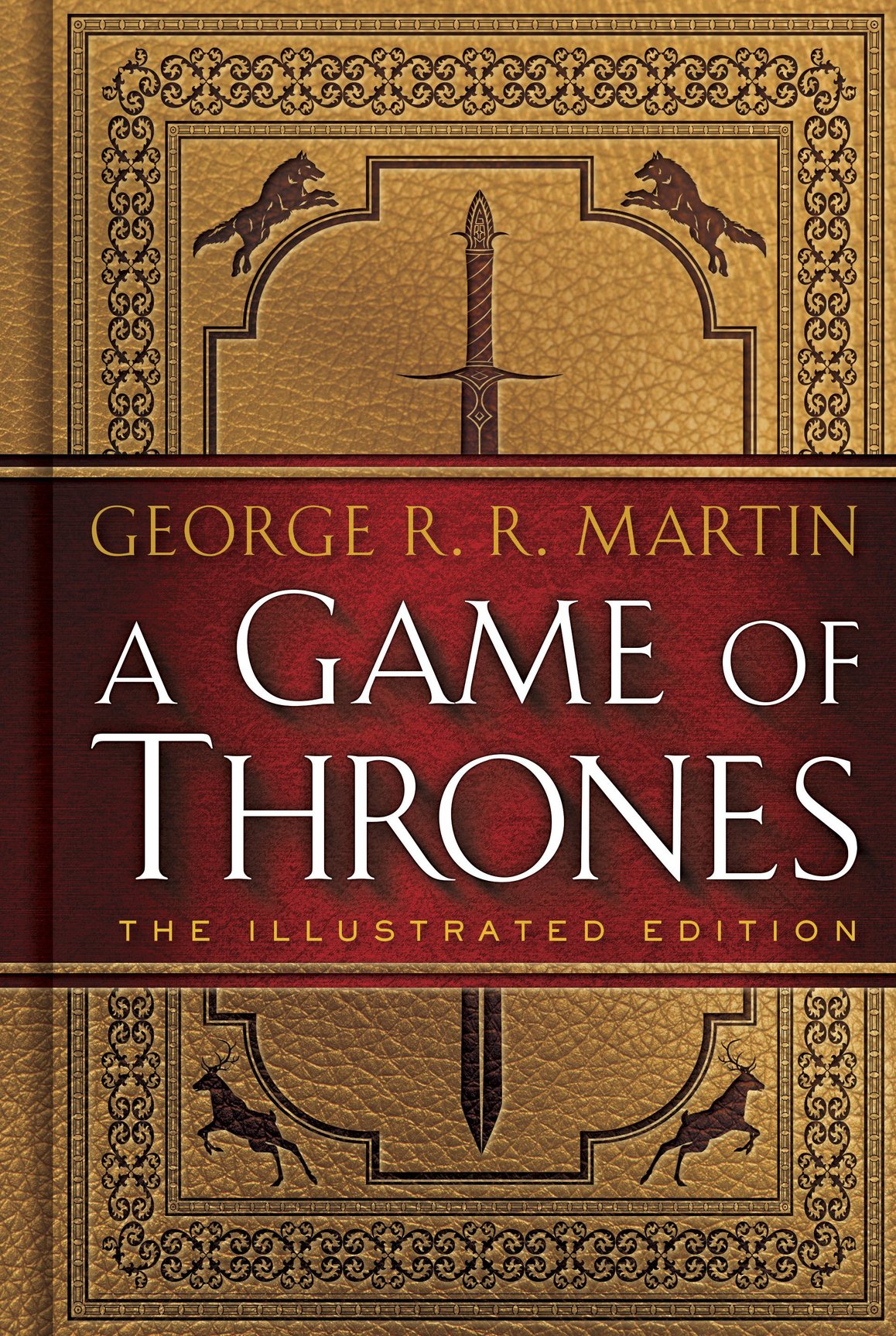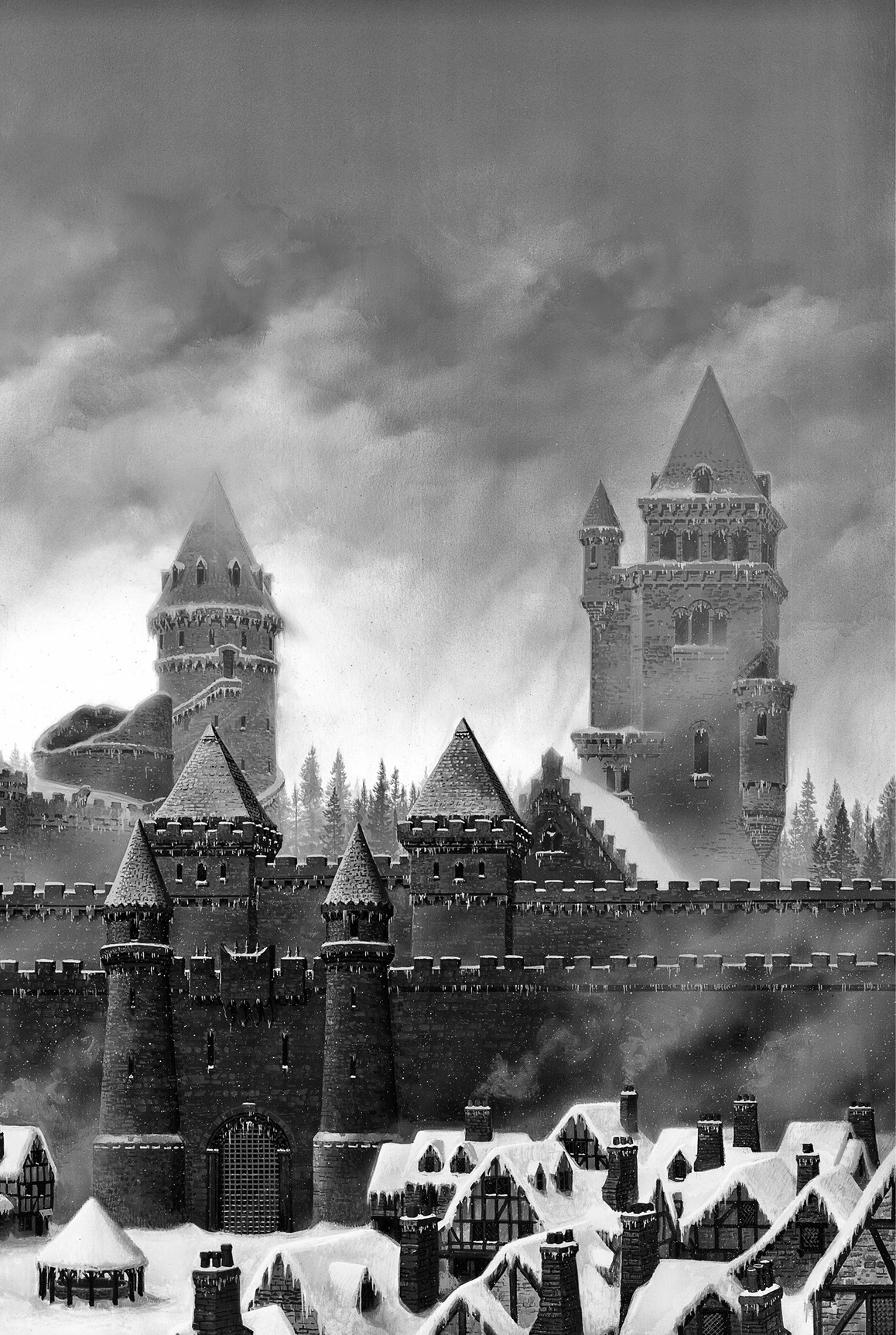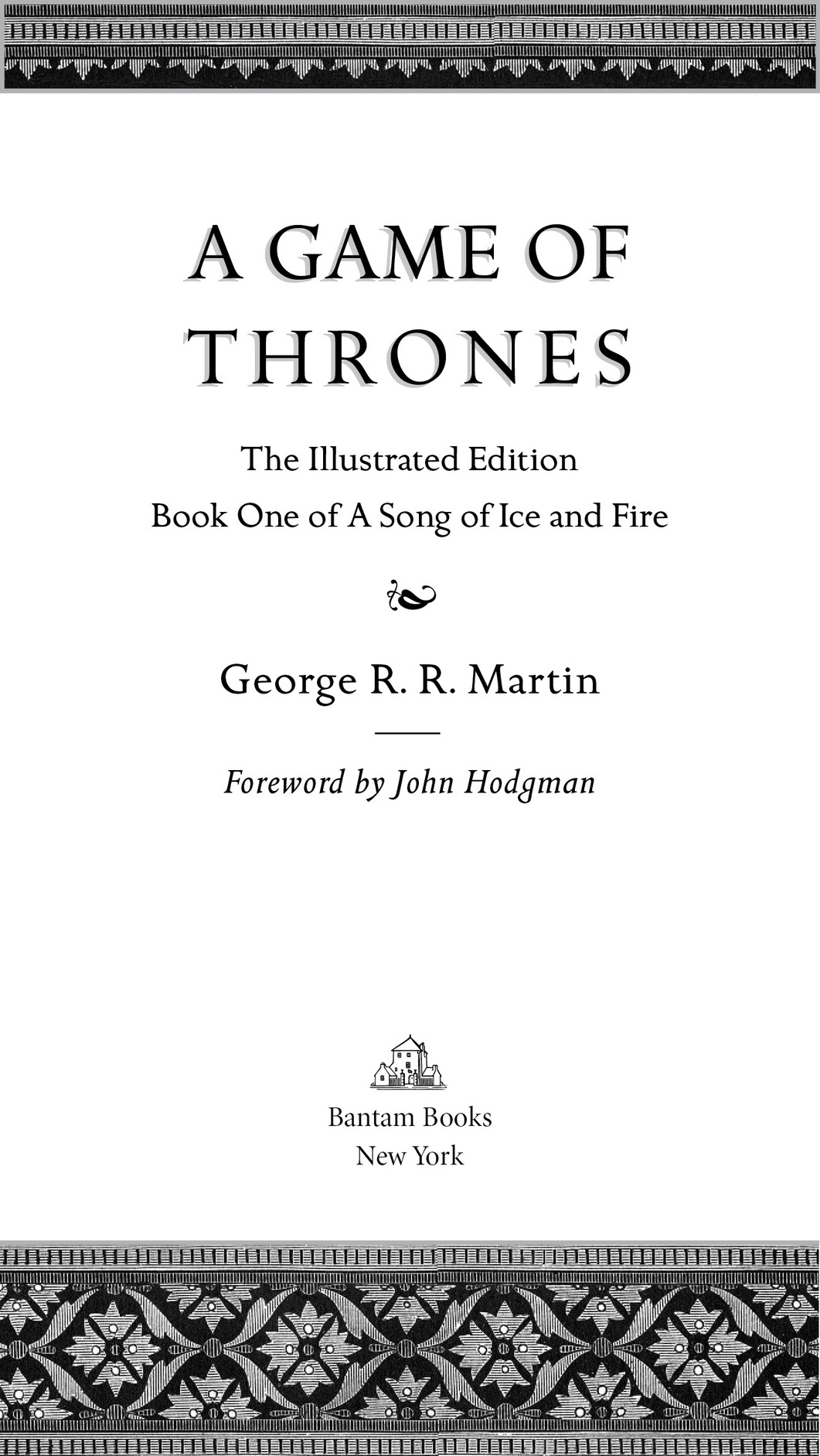A Game of Thrones is a work of fiction. Names, characters, places, and incidents either are the product of the authors imagination or are used fictitiously. Any resemblance to actual persons, living or dead, events, or locales is entirely coincidental.
Copyright 1996 by George R. R. Martin
Foreword copyright 2016 by John Hodgman
Illustrations, unless otherwise noted, copyright 2016 by George R. R. Martin
Maps copyright 2011 by Jeffrey L. Ward
All rights reserved.
Published in the United States by Bantam Books, an imprint of Random House, a division of Penguin Random House LLC, New York.
B ANTAM B OOKS and the H OUSE colophon are registered trademarks of Penguin Random House LLC.
Originally published in hardcover and in slightly different form in the United States by Bantam Books, an imprint of Random House, a division of Penguin Random House LLC, in 1996.
Some of the illustrations in this work were previously published in the following works: The World of Ice and Fire (New York: Bantam Books, 2015); the 2009, 2011, 2012, and 2014 A Song of Ice and Fire calendars (New York: Bantam Books, 2009, 2011, 2012, 2014); and card and board games and RPGs based on A Game of Thrones.
Illustrations by Michael Komarck on copyright Fantasy Flight Games
Illustrations by Michael Komarck on copyright Dynamite Entertainment
Illustration by Michael S. Miller on copyright Dynamite Entertainment
Heraldic crests by Jennifer Sol Cai (Velvet Engine) copyright George R. R. Martin
Remaining art credits are located on
ISBN9780553808049
Ebook ISBN9781101965870
randomhousebooks.com
20th Anniversary Illustrated Edition
Book design by Virginia Norey, adapted for ebook
Cover design and illustration: David G. Stevenson
v4.1
ep
Contents
FOREWORD
John Hodgman
George R. R. Martin takes his time, so the joke I had to open this introduction was that I actually started writing it twenty years ago for the first edition of A Game of Thrones and only just now finished it.
But, in fact, I had not even read this book in 1996. (And, in double fact, I turned this in only a week late.)
I didnt read this book in 1996 because I was a dumb snob. In that ancient past I was in my twenties, and, considering myself a man grown, I didnt read a lot of fantasy anymore. I imagined it pure escapism, a retreat into fuzzy, magical other realms where evil is defeated and heroism not merely rewarded but possible.
And even when I did read it, in 2010inspired, like maybe you, by the then-upcoming TV showI was still a little dumb and snobby.
Am I really doing this? I recall thinking during my first pages. Am I really reading a book about dragons?
Of course, though, it didnt take me long to realize I wasnt reading a book about dragons at all but about far worse monsters: people. And while there isnt a lot of magic in this world, George R. R. Martin pulls off some incredible tricks.
Its not a spoiler at this point to say that GRRM is an astonishing writer. I mean, gasp-inducing, and not just because of his known plot-twisting but also for his sheer skill at inhabiting humans: men and women, royal and low, parents and children and direwolves (not technically human, but keep reading). Each perspective is fully alive, distinct, and layered authentically with his or her own memories, prejudices, desires. Even when you hate a character, you understand, and sometimes find yourself rooting for them.
Its hard to imagine them all emanating from this one dude in Santa Fe, just as it is equally difficult to fathom the wholeness and realness of the fake world hes made: all its cultures, theologies, and family trees, branching and entwining; the depth not only of its history but the complex ways that history is remembered and misremembered on purpose; the research poured into medieval-castle construction, armor terminology, doublet stitching, and the food. Course after course of intricately described, beautifully weird foodlargely things stuffed into swans, I seem to recall. The sheer heft of verisimilitude hes conjured in the background of this book, which is pretty hefty itself, again feels like it must be the work of one hundred authors comprising a fictional George R. R. Martin. Or maybe the compulsive product of a single lunatic mind. But I have met George R. R. Martin. He exists, and he is a cheerful non-lunatic, unhaunted, except, perhaps, by the trials of the New York Jets.
But what really got me, however, and what I think is the books chief accomplishment, is its meanness. Again, George is not mean. He is generous with his time and laughter and advice as to where to find the best burritos in New Mexico. And I am not even talking about the cruelty of the big surprise in this book, which you probably already know about from TV, or the sadism of some of his characters. Its the way he has captured the authentic meanness of the medieval world.
This is no Ren Faire jape, and it certainly is not escapism. This is a brutal, unmagic world. Life is short here, shadowed by violence, illness, accident, and uncaring nature. While I love the TV show and can appreciate why you might want to have a profoundly handsome young man play Jon Snow, as opposed to, say, a scrawny, weird fifteen-year-old, the sharp shock of rereading the book is remembering that the Stark children are children, and Ned Stark is thirty-five when the book begins and lucky to have gotten there. And thats just the nobility. For the poor and lowborn and weak, were reminded that the law is essentially meaningless. As an asthmatic son descending from two working-class families, I would not do well in Westeros. Id probably be the butchers boy, casually gutted by the Hound and forgotten. (OK, thats a spoiler, but not a big one, and you would probably have seen it coming anyway.) Unlike with most fantasy, you would never fantasize about living there. Unless you were a Lannister, in which case I would say, check your privilege.
The book isnt very kind to fantasy either. After all, its Sansas escapist addiction to the old tales and the romantic pablum of Florian and Jonquil that fuels her great, catastrophic betrayal of the actual humans around her. (Spoiler? Lets call it a foreshadowing.) And a particularly common human fantasynostalgiahaunts this story: the double fallacy that the past was better and we can actually go back to it. Over and over we are reminded that what we thought was true about the good old days was more than half a lie and that the fight to restore the Seven Kingdoms (but which era? Which mad king or conqueror was best?) is a pointless, bloody, literal game, all played while the real old days, the horror and the darkness in the north, are coming back to consume them all. There are many in this book who want to M AKE W ESTEROS G REAT A GAIN , one way or another. Some we like. Others we hate. But as in this world, they are all mostly engines of pointless pain and destruction and end up failures.


